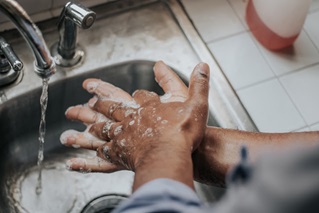Ensuring Food Safety: A Guide to Proper Food
Introduction:
Food hygiene is a crucial aspect of maintaining public health and preventing the spread of foodborne illnesses. Whether you're a home cook, a restaurant owner, or someone handling food in any capacity, understanding and implementing proper food hygiene practices is essential. This article explores the fundamentals of food hygiene and offers practical tips to ensure the safety of the food we consume.
- Hand Hygiene:
One of the most common ways that food can become contaminated is through improper hand hygiene. Always wash your hands thoroughly with soap and water before handling food. This is particularly important after using the restroom, touching your face, handling raw meat, or any other activity that may introduce bacteria to your hands.
- Food Storage:
Proper food storage is essential to prevent the growth of harmful bacteria. Keep raw and cooked foods separate to avoid cross-contamination. Raw meat, poultry, and seafood should be stored at the bottom of the refrigerator to prevent their juices from dripping onto other foods. Ensure that your refrigerator is set to the correct temperature (below 40°F or 4°C).
- Cleaning and Sanitizing:
Regularly clean and sanitize all surfaces and utensils that come into contact with food. This includes cutting boards, knives, countertops, and any other tools used during food preparation. Use hot, soapy water for cleaning and a sanitizing solution (such as a mixture of water and bleach) to kill any remaining bacteria.
- Safe Food Handling:
When handling raw meat, poultry, or seafood, it's important to follow safe practices. Use separate cutting boards for raw and cooked foods, and never use the same utensils for both without washing them thoroughly in between. Cook food to the recommended internal temperatures to ensure that harmful bacteria are eliminated.
- Personal Hygiene:
If you're sick or have an open wound, it's crucial to avoid handling food to prevent the spread of illness. Anyone involved in food preparation should be aware of the importance of personal hygiene, including wearing clean and appropriate clothing, tying back hair, and avoiding unnecessary touching of the face or hair.
- Pest Control:
Pests such as rodents and insects can introduce contaminants to food preparation areas. Implementing effective pest control measures, such as proper waste disposal, sealing entry points, and maintaining a clean environment, is essential to prevent infestations that could compromise food hygiene.
- Training and Education:
Education is key to maintaining high food hygiene standards. Ensure that all individuals involved in food handling, from chefs to kitchen staff, are well-trained in food safety practices. Regular training sessions can reinforce the importance of hygiene and keep everyone up-to-date on the latest guidelines.
Conclusion:
By incorporating these food hygiene practices into your daily routine, whether at home or in a professional kitchen, you contribute to the overall safety and well-being of those who consume the food you prepare. Food hygiene is a shared responsibility that requires diligence, attention to detail, and a commitment to maintaining high standards of cleanliness in all aspects of food handling and preparation.









ليست هناك تعليقات:
إرسال تعليق
ملحوظة: يمكن لأعضاء المدونة فقط إرسال تعليق.